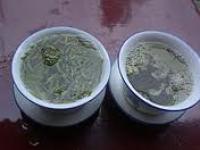
Taiwanese scientists Hsiu-Chen Huang and Jen-Kun Lin conducted the animal study to examine the hypolipidemic and hypoleptinemia effects of four types of teas including green, black, pu-erh and oolong teas in male Wistar rats in the 12-week feeding trial and found all teas except for oolong tea significantly reduced the negative impact from a fructose-rich diet.
Specifically, rats on a fructose-rich diet significantly increased serun triacylglycerols, cholesterol, insulin, and leptin concentrations, compared with those not fed the fructose rich diet. And consuming tea leaves for 12 weeks almost normalized serum triacylglycerol concentrations.
Rat fed the fructose-rich diet but also either green or pu-erh tea showed the greatest reduction in serum triacylglycerols, cholesterol, insulin and leptin concentrations, compared with those on the fructose-rich diet alone. Rats on the fructose-rich diet, but also supplemented with oolong tea did not normalize serum cholesterol and insulin levels.
Rats supplemented with tea leaves had relative lower epididymal adipose tissue weight, compared with those on the fructose diet alone.
The benefits from tea leaves should have something to do with fatty acid synthase (FAS) protein expression. The researchers found supplementation of green tea, black tea, and pu-erh tea significantly decreased fatty acid sunthase mRNA and protein levels, and also increased AMPK phosphorylation in the liver, compared with those fed the fructose rich diet only.
The researchers concluded "These findings suggest that the intake of green, black, and pu-erh tea leaves ameliorated the fructose-induced hyperlipidemia and hyperleptinemia state in part through the suppression of FAS protein levels and increased AMPK phosphorylation."







